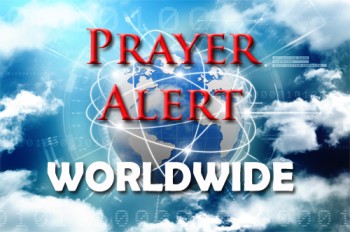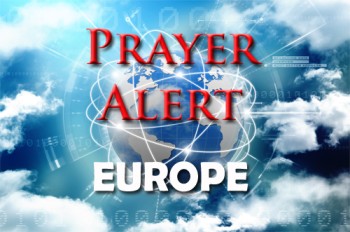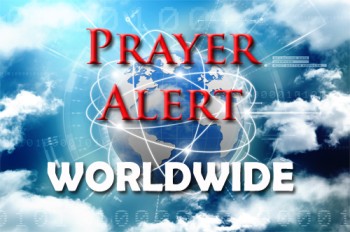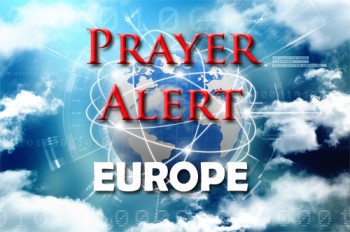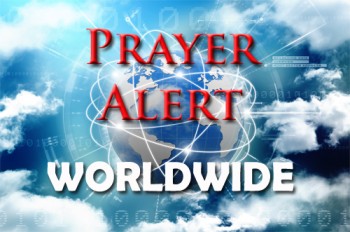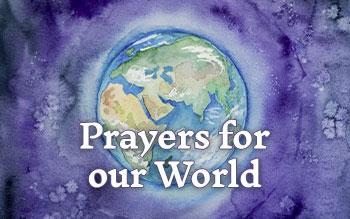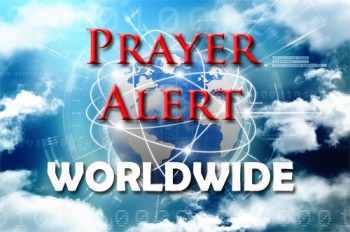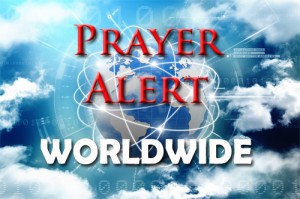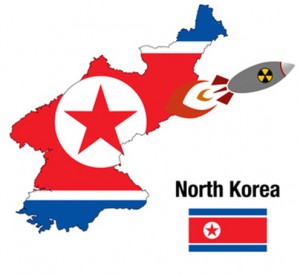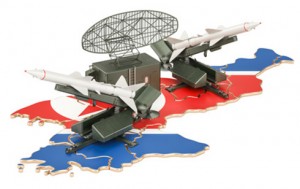Displaying items by tag: nuclear weapons
Trump’s strikes on Iran harden North Korea’s nuclear resolve
Donald Trump’s decision to authorise airstrikes on three Iranian nuclear facilities has strengthened North Korea’s belief that nuclear weapons are vital for regime survival. While both nations seek deterrence, North Korea’s approach is rooted in preserving the Kim regime itself, backed by its extensive nuclear and missile arsenal. A US strike on that arsenal is highly unlikely, due to the country’s ability to target Seoul and US interests in the Indo‑Pacific. Its deeply buried nuclear facilities and alliances with Russia and China further complicate any potential attack. Experts have warned that Trump’s decision has had a significant impact on Pyongyang’s foreign policy, strengthening its belief that possessing nuclear weapons guarantees survival. With deepening mistrust of the USA, North Korea will be even less likely than before to change its belligerent attitude.
Russia: calls for retaliation after Ukraine’s audacious attacks
Following Ukraine’s audacious deep strikes on Russian strategic bomber bases, Moscow is facing mounting internal pressure to retaliate. While the Kremlin remains publicly silent pending investigation, media figures and bloggers have erupted with calls for harsh responses, including nuclear retaliation. Though such threats are not new in Russian rhetoric, the recent attacks - possibly disrupting Russia’s nuclear response capabilities - may challenge the limits of Moscow’s stated nuclear doctrine. An actual nuclear strike remains unlikely due to the immense diplomatic fallout it would trigger, particularly with key partners like China and India. A more probable reaction will take the form of intensified missile and drone attacks on Ukrainian infrastructure. As Ukraine’s Western allies ease restrictions on weapons use, the Kremlin may feel compelled to escalate, risking unpredictable consequences in an already volatile war. Meanwhile, the two sides have failed to make progress in ceasefire talks in Istanbul: see
Japan: atomic bomb survivors receive Nobel Peace Prize
The 2024 Nobel Peace Prize has been awarded to Nihon Hidankyo, a grassroots Japanese organisation of Hiroshima and Nagasaki atomic bomb survivors, for its tireless efforts to eliminate nuclear weapons. It was formed in 1956 to document survivor testimonies and press for nuclear disarmament at the UN and other global forums. Nihon Hidankyo's work aligns with Alfred Nobel’s will, emphasising peace and the abolition of war. The organisation will receive a $1 million award: prime minister Shigeru Ishiba called the recognition ‘extremely meaningful’. The Nobel committee noted that the ‘nuclear taboo’ is under pressure: the nine nuclear-armed countries are continuing to modernise their weapons, and currently there are 12,121 warheads in the world. Hibakusha’s testimonies serve as a powerful reminder of the human cost of nuclear warfare and a call for a peaceful, disarmed future.
Russia: warnings and dangers
After Ukraine’s recent drone attacks, there have been warnings of tough retaliatory measures. Putin’s closest ally Dmitry Medvedev, of Russia's Security Council, said Moscow must ‘choose unconventional targets for our strikes - not just storage facilities, energy hubs and oil bases.’ He also warned of a global conflict breaking out as nuclear tensions rise and concerns about climate change intensify: ‘The world is sick, and quite probably on the verge of a new world war.’ Officials in Moscow have repeatedly warned that the world faces the most dangerous decade since World War 2. At NATO’s arms control conference recently, the USA said, ‘We have watched and worried that Putin would use his non-strategic tactical nuclear weapon for a managed risk escalation. It’s critical that we remain watchful.’ NATO’s secretary general said Putin’s plan to place tactical nuclear weapons in Belarus was part of a years-long pattern of ‘dangerous, irresponsible nuclear rhetoric’ which intensified with the ‘brutalisation of Ukraine’. See
Turkey: nuclear weapons
In an unprecedented move, President Erdogan has declared his desire to obtain nuclear weapons, flouting Turkey’s obligations as a signatory of the Non-Proliferation Treaty. In a speech he praised the advancement of Turkey’s defence industry, and then said, ‘It is all fine and well, yet some countries have missiles with nuclear warheads, not one or two. But I don’t have missiles with nuclear heads. This I cannot accept.’ This statement reflects his mistrust in the nuclear umbrella of NATO, to which his country belongs. It also suggests that he does not regard the American B61 tactical nuclear weapons deployed at an air base in southern Turkey, as part of NATO’s nuclear programme, as a significant deterrent. Erdogan’s crucial remark, ‘We are currently working on it’, suggests Turkey is engaged in activities to acquire a nuclear capability.
Putin Signs Law Suspending Russia's Participation in INF Treaty
Russian President Vladimir Putin has signed legislation that suspends the country's participation in the Cold War-era Intermediate-Range Nuclear Forces (INF) Treaty between Moscow and Washington.
The law, which was backed by parliament last month, was published on the government portal for legal information on July 3.
In February, the United States suspended its participation in the 1987 INF Treaty, with Washington and its allies accusing Russia of deploying a missile system that violates the pact.
Russia, which denies the allegation, later followed suit. Moscow accuses the United States of breaking the accord itself, a claim rejected by Washington.
The INF Treaty was the first of its kind to eliminate an entire class of missiles.
It banned the United States and Russia from developing, producing, and deploying ground-launched cruise or ballistic missiles with ranges of between 500 and 5,500 kilometers.
Based on reporting by Reuters and TASS
Pray: That parties to this agreement will return to the negotiating table.
Pray: For a new treaty to be brokered and an end to the production of these and other nuclear missiles.
North Korea: activity at missile site
The satellite launch facility at Tongchang-ri became dormant last August. Now satellite images show that rebuilding efforts began between 16 February and 2 March - either just before, during or immediately after Kim Jong-Un and Donald Trump abruptly ended their second summit on 28 February without signing a deal. Though the satellite images provide useful information, analysts and experts express caution against reading too much into them without sufficient intelligence to complement. Amid much media and ‘professional’ speculation, a senior research associate at the Centre for Nonproliferation Studies said, ‘It's possible that the activity at the facility is a chess move in North Korea's negotiating strategy to ratchet up pressure on Washington. The site, in the macro-sense, is very transparent and the North Koreans know we are always watching.’
India: nuclear submarine’s first voyage
Prime minister Narendra Modi says the first successful voyage by India’s home-built nuclear submarine is a ‘warning for the country's enemies’. The INS Arihant recently completed a month-long ‘deterrence patrol’, meaning India now has the capability to fire nuclear weapons from land, air and sea. Mr Modi, a Hindu nationalist, tweeted it was a ‘fitting response to those who indulge in nuclear blackmail’. In a speech televised nationwide, he told the submarine’s crew, ‘Amid an increase in the number of nuclear weapons in our surroundings, a credible nuclear deterrence is extremely important for our country's security’. His words are a thinly-veiled reference to India's neighbours, China to its north and its traditional enemy, Pakistan, to the west. The often volatile relationship with Pakistan has cooled even more noticeably since Mr Modi took office in 2017 and adopted a more assertive strategy towards its arch-rival.
North Korea 'devastating' EMP Threat
Only a few weeks after a team of experts warned Congress that the nation faces an “existential threat” from North Korea from a possible electromagnetic pulse attack, a new report says the rogue nation is mapping a specific plan.
Paul Bedard at the Washington Examiner wrote in his “Washington Secrets” column that the White House “is being warned that North Korea is mapping plans for a ‘devastating’ attack on the United States with an atmospheric nuclear explosion that would disable the nation’s electric grid, potentially leading to the deaths of virtually all impacted.”
He said President Trump “is being urged to create a special commission to tackle the potential for an electromagnetic pulse attack, one similar to the iconic Manhattan Project.”
Bedard cited Marine Corps veteran Tommy Waller, an advocate for an EMP commission, now the director of special projects at the Center for Security Policy.
“The first and foremost thing he must write is an executive order establishing his own EMP commission in the White House – a task force that draws from the experience of the previous EMP Commission,” Waller wrote.
Waller said that after “massive intelligence failures grossly underestimating North Korea’s long-range missile capabilities, number of nuclear weapons, warhead miniaturization, and proximity to an H-Bomb, the biggest North Korean threat to the U.S. remains unacknowledged – nuclear EMP attack.”
“North Korea confirmed the EMP Commission’s assessment by testing an H-Bomb that could make a devastating EMP attack, and in its official public statement: ‘The H-Bomb, the explosive power of which is adjustable from tens of kilotons to hundreds of kilotons, is a multi-functional thermonuclear weapon with great destructive power which can be detonated even at high altitudes for super-powerful EMP attack according to strategic goals.'”
One of those experts who delivered the warning to Congress, Peter Pry, told WND it is the deep state, entrenched bureaucrats whose loyalties likely lay with a previous administration, that is indifferent to a threat that testimony has confirmed could kill 90 percent of the people in the affected region within a year.
Get the real story about EMP in the ground-breaking “A Nation Forsaken” by F. Michael Maloof, as well as “Lights On” by Jeffrey Yago, from the WND Superstore.
Pry, a nuclear strategist formerly with the CIA who served as chief of staff of the Congressional EMP Commission until it was terminated in September (the same month North Korea tested a hydrogen bomb, which it described as capable of a super powerful EMP attack), said liberal Democrats still are running a lot of Washington even after President Trump’s election.
“The people who sabotaged the EMP Commission, Obama holdovers, are still at the Department of Defense. They have not been replaced by the Trump administration. This is happening not just with the vitally important EMP Commission,” he said. “Our society, the Trump administration and the people who voted for Trump are paying for the failure of Congress to support Trump appointees quickly.
“At the same time during the Obama administration, he had twice as many appointees appointed to positions in government than Trump has. It’s not President Trump’s fault – these people are undermining and opposing the policies that President Trump has enacted, including the case of the EMP Commission.”
Pry explained Obama administration bureaucrats, who believed Hillary Clinton would win the 2016 presidential election, did everything they could to sabotage and undermine the commission.
“They held back money for a whole year. They held back security clearances. They tried to stop the commission’s staff from working, arguing that ‘you need a contract in order to work for the EMP Commission.’ They wouldn’t even let me work, or other staff, pro-bono. We did anyway.
“Had Hillary won, we would never have received any of our funding or security clearances. It was all after she clearly lost and Congress intervened that they relented at the last minute. A commission that was supposed to have been able to work 18 months at EMP ended up with resources and support from the Department of Defense that enabled us to put in six months of work. That’s no way to provide for the national security of the country against an existential threat like EMP.”
An EMP comes from a nuclear explosion at altitude over the United States. The blast would disrupt electronics in line of sight, including those computer and other systems that deliver food, fuel, energy and communications to Americans.
Further, repairing or replacing those systems easily could take months, or even longer.
The result would be a run on food currently in stores, and starvation when those supplies failed, as replacements would be impossible without those delivery systems.
Pry detailed how an EMP attack would be more devastating than an asteroid hitting.
“We have a population of 320 million Americans today – we are only able to sustain that population because of our technology. Our modern technological economy and all of our critical infrastructure that support that economy is keeping 320 million Americans alive,” he explained. “Communication, transportation, business and finance, our industrial capability, even food and water depend on electricity. When you subtract electricity, when you cause a nationwide blackout, blackout the electric grid and all the life-sustaining critical infrastructures, how can you now support 320 million people? How many people can you support?”
Pry said many downplay the threat of an EMP attack by claiming the conditions resulting from the attack would be similar to “time traveling” to a time when people were less dependent on electricity. But in reality, he warned, the “aftermath of an EMP would be an unprecedented environmental catastrophe.”
There would be a ripple effect to the problem, too.
“Gas line pipes are going to blow up – you’ll have firestorms in cities from exploding gas pipelines. Chemical spills, toxic clouds industrial accidents, where fires break out because of the failure of safety … systems,” he said. “This huge chemistry set that is our society isn’t just going to sit there and black out; in many cases, it’s going to detonate and basically turn into bombs. In seven days, the nuclear reactors will go Fukushima and spread radioactivity everywhere.”
Jeffrey Yago, a licensed engineer and certified energy professional, says the danger of an EMP attack is very real.
“I think in the future of this country, we’re going to certainly see not only more power outages in more areas, but they’re going to last a lot longer,” Yago said during an interview on The Hagmann Report. “I’m not talking about a two-day outage [caused] by a storm or a weeklong outage by something like Hurricane Sandy or Katrina, but we’re talking potentially, these problems could impact major parts of the United States for months, not days.”
Yago believes if America continues on its current path of escalating tensions with North Korea, an EMP attack will be imminent. He suspects China, North Korea’s biggest ally, would rather see North Korea attack the U.S. with an EMP weapon than with a more conventional nuclear missile. A nuclear missile would destroy buildings and other infrastructure that China, the U.S.’s largest foreign creditor, may hope to own one day. An EMP attack would destroy America’s electrical grid while leaving other critical infrastructure intact.
Plenty of experts in the public and private sectors are aware of the EMP threat to America’s power grid. Multiple studies have been published, including “Securing the U.S. Electrical Grid” by the Center for the Study of the Presidency and Congress in 2014, “Electric Grid Vulnerability” by the staff of two Democratic congressmen in 2013, and “Large Power Transformers and the U.S. Electric Grid” by the U.S. Department of Energy in 2012.
Get the real story about EMP in the ground-breaking “A Nation Forsaken” by F. Michael Maloof, as well as “Lights On” by Jeffrey Yago, from the WND Superstore.
North Korea Further Briefing (Dec 2017)
I trust you have been following the news about the current threat from North Korea that could impact both Asia and North America, especially if Kim Jong Un, fires another ICBM and accidentally hits Japan or South Korea, prompting retaliation and war, or shoots a nuke a couple hundred miles above North America in what is called an EMP or electro-magnetic pulse attack that could knock out power grids and put the lives of millions in the continent at stake.
Please see the article below and pray for a wall of protection around the countries of Asia and North America. The Psalmist reminds us over and over that the Lord is the one who protects our nations. He is our only security in the final analysis. He is our "strength and shield", "a fortress of salvation" and hears our cry for mercy (28:6-8) so let's pray accordingly in this tense time.
I was in Washington DC last week and met with one of the USA's national security people who is an expert on North Korea also a woman of prayer. She said the crisis is likely to get "more intense" and that we should pray there will be no miscalculation on either side. Let's please therefore pray that God would give wisdom and restraint to all the political leaders involved whether in North and South Korea, Japan, China, Russia and the USA.
During a national prayer call that focused on the Korean situation last night, I quoted a theologian who penned those famous words: "History belongs to the intercessors who believe the future into being." Let's trust God together and believe for a peaceful solution to this grave situation.
Please watch and pray over the news from the Korean peninsula. This is the most threatening and dangerous situation the world faces right now and it looks to be worsening.
Pray: that the North Koreans will back down from their provocative actions.
Pray: that Kim Jong Un will either change course or be removed by his own government or by Chinese intervention.
Pray: that a military confrontation that could take the lives of hundreds of thousands or even millions would be averted.
Pray: ask that God would give special wisdom and restraint to President Trump, President Xi Jinping of China, President Moon Jae-in of South Korea as well as all other leaders involved in the current crisis that a peaceful solution can be found to ending North Korea's nuclear threats and weapons program.
Please refer to our previous articles on the IPC Prayer Website: http://www.ipcprayer.org/ipc-connections/item/9956-praying-for-north-korea-nov-2017.html
John D RobbChairman
IPC Prayer Connect
Sarah Lee writes: The situation is more precarious than ever. In fact, the crisis we are seeing is one that is unprecedented. The present South Korean government is pushing ahead with near-communist policies at full-throttle. In the midst of the threats being hurled from North Korea, such governmental steering has enraged some people, confused others, and brainwashed even others with false ideologies.
The threats from North Korea saying that it will make Seoul a sea of fire is being ratcheted up even more, and this has greatly contributed to the rapid fraying of a near 70 year old alliance between South Korea and the U.S. Many analysts and experts see this fraying as the first step toward the communization of all of Korea.
Pray: that the tides would turn and that the South Korea-U.S. alliance would be reinforced.
Pray: That the destiny of this alliance — and this nation — cannot be left to the hands of the sympathizers of the North Korean regime.
We are feeling with every cell in our bodies that the only hope for this nation is in Christ alone. We are seeing a new fire being ignited in the prayers of the Korean Church. New prayer gatherings with new strength are rising up throughout the nation. For this, we praise the Lord!
I am thankful that we are able to join in the midst of prayers being lifted up to the Lord in our respective places.
Thank you again, for your prayers in such a critical time.
In His hope and faithfulness,
Sarah
